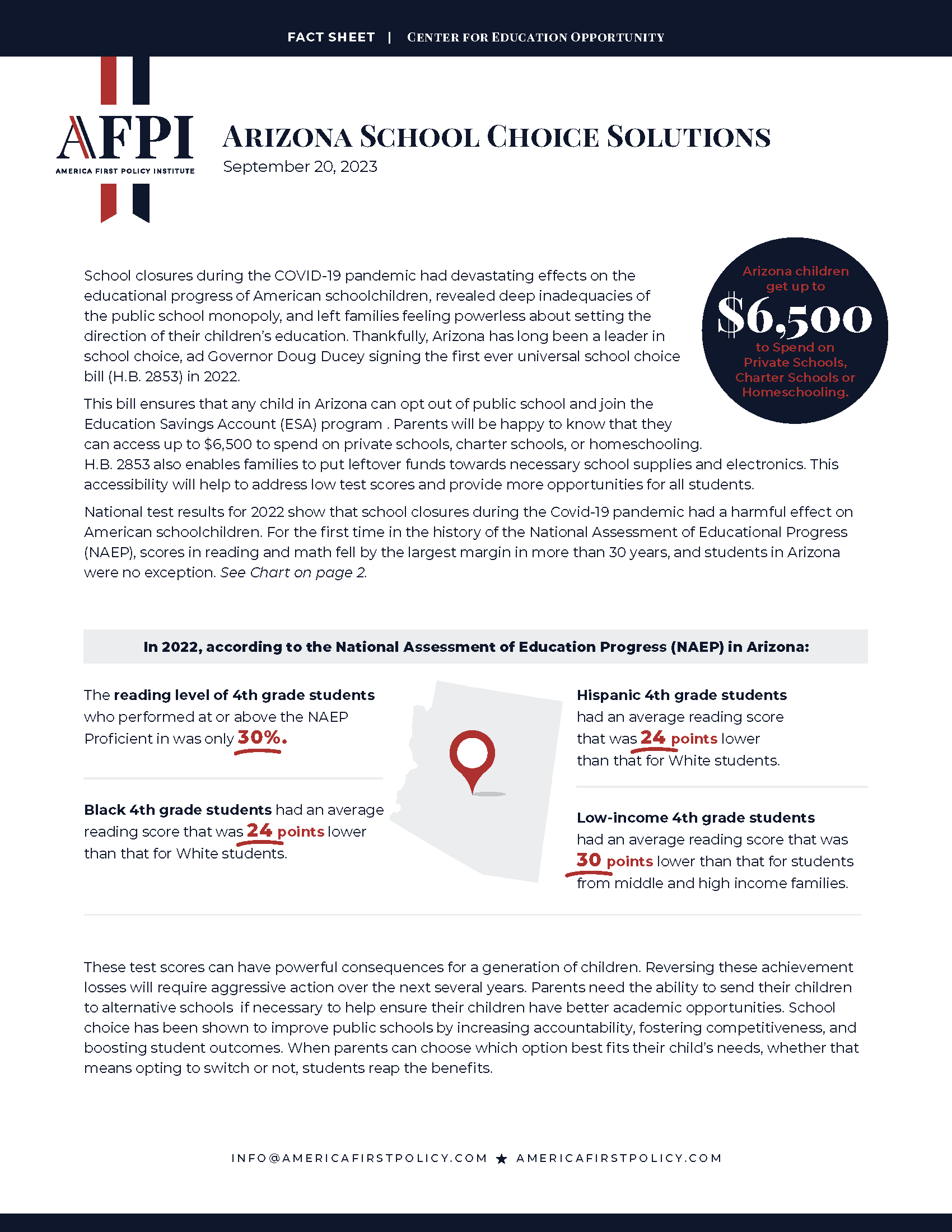Arizona School Choice Solutions
School closures during the COVID-19 pandemic had devastating effects on the educational progress of American schoolchildren, revealed deep inadequacies of the public school monopoly, and left families feeling powerless about setting the direction of their children’s education. Thankfully, Arizona has long been a leader in school choice, ad Governor Doug Ducey signing the first ever universal school choice bill (H.B. 2853) in 2022.
This bill ensures that any child in Arizona can opt out of public school and join the Education Savings Account (ESA) program . Parents will be happy to know that they can access up to $6,500 to spend on private schools, charter schools, or homeschooling. H.B. 2853 also enables families to put leftover funds towards necessary school supplies and electronics. This accessibility will help to address low test scores and provide more opportunities for all students.
National test results for 2022 show that school closures during the Covid-19 pandemic had a harmful effect on American schoolchildren. For the first time in the history of the National Assessment of Educational Progress (NAEP), scores in reading and math fell by the largest margin in more than 30 years, and students in Arizona were no exception. See Chart on page 2.
In 2022, according to the National Assessment of Education Progress (NAEP) in Arizona:
- The reading level of 4th grade students who performed at or above the NAEP Proficient in was only 30%.
- Black 4th grade students had an average reading score that was 24 points lower than that for White students.
- Hispanic 4th grade students had an average reading score that was 24 points lower than that for White students.
- Low-income 4th grade students had an average reading score that was 30 points lower than that for students from middle and high income families.
These test scores can have powerful consequences for a generation of children. Reversing these achievement losses will require aggressive action over the next several years. Parents need the ability to send their children to alternative schools if necessary to help ensure their children have better academic opportunities. School choice has been shown to improve public schools by increasing accountability, fostering competitiveness, and boosting student outcomes. When parents can choose which option best fits their child’s needs, whether that means opting to switch or not, students reap the benefits.
AFPI has been working to educate all Americans about the importance of school choice and met with several Arizona policymakers to explain more about this issue when they were considering the legislation . Despite new Governor Katie Hobbs threatening to defund the program, there is widespread support among the public—much of which is bipartisan—for it to continue. America First Works (AFW) continues to amplify messaging around this issue, produce op-eds, and distribute press releases that will help ensure Arizona citizens know how beneficial school choice can be. Now is the time for Arizona—and specifically Gov. Hobbs—to push forward with school choice, not backwards. If not, Arizona students will suffer greatly, and the teacher turnover rate might very well remain the lowest in the country.
School choice is representative of two core American values—freedom and opportunity. At AFPI, we believe that the purpose of education is to prepare Americans for the rights and responsibilities of citizenship. As public support for school choice continues to grow, students across the Nation will have access to schooling that meets individualized needs, and educational outcomes will improve. Most importantly, parents will be empowered to have a stronger voice in the conversation about their child’s schooling. While the Biden Administration tries to stall progress on school choice policies, the Center for Education Opportunity at AFPI remains highly committed to the school choice mission.
